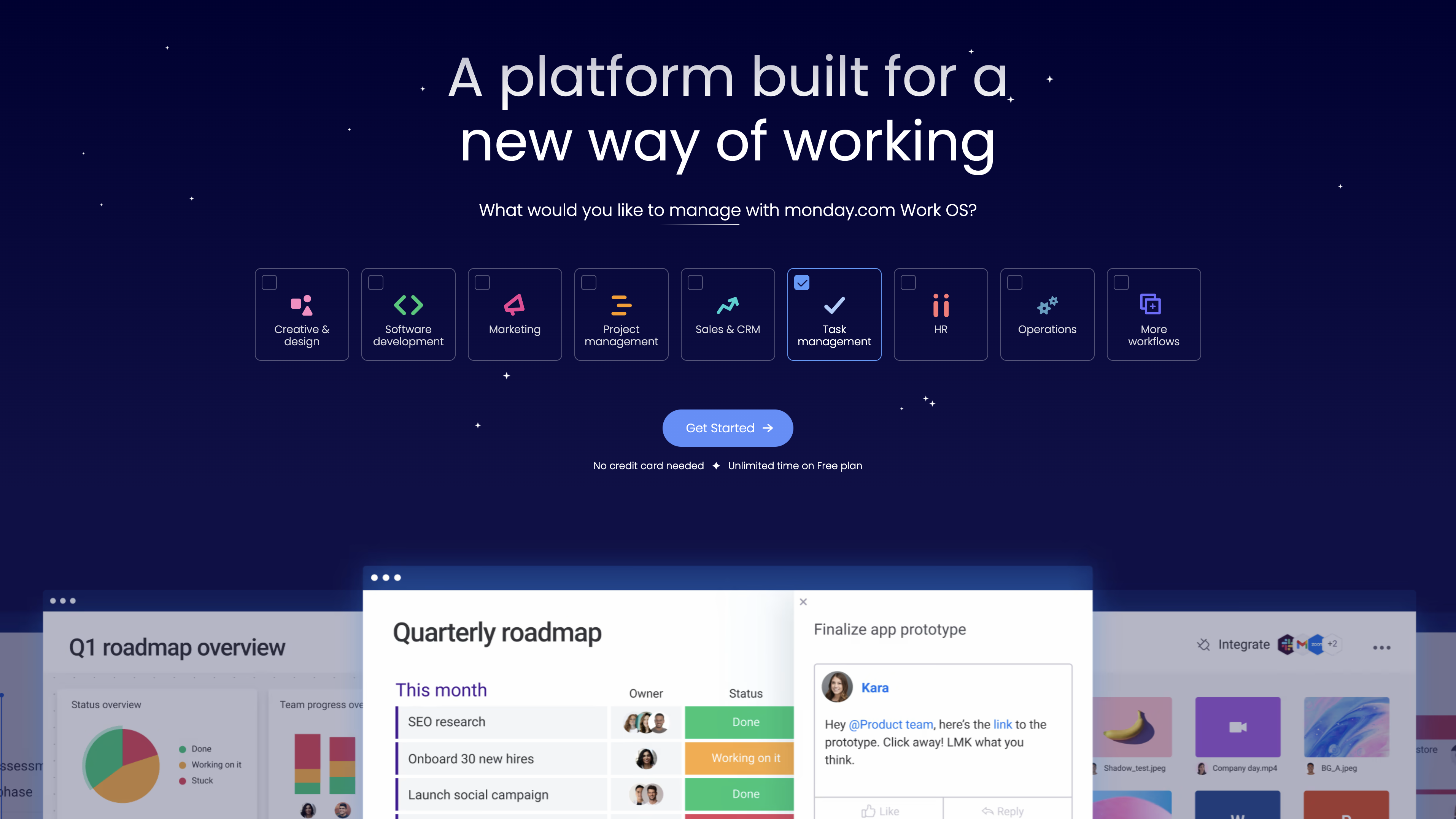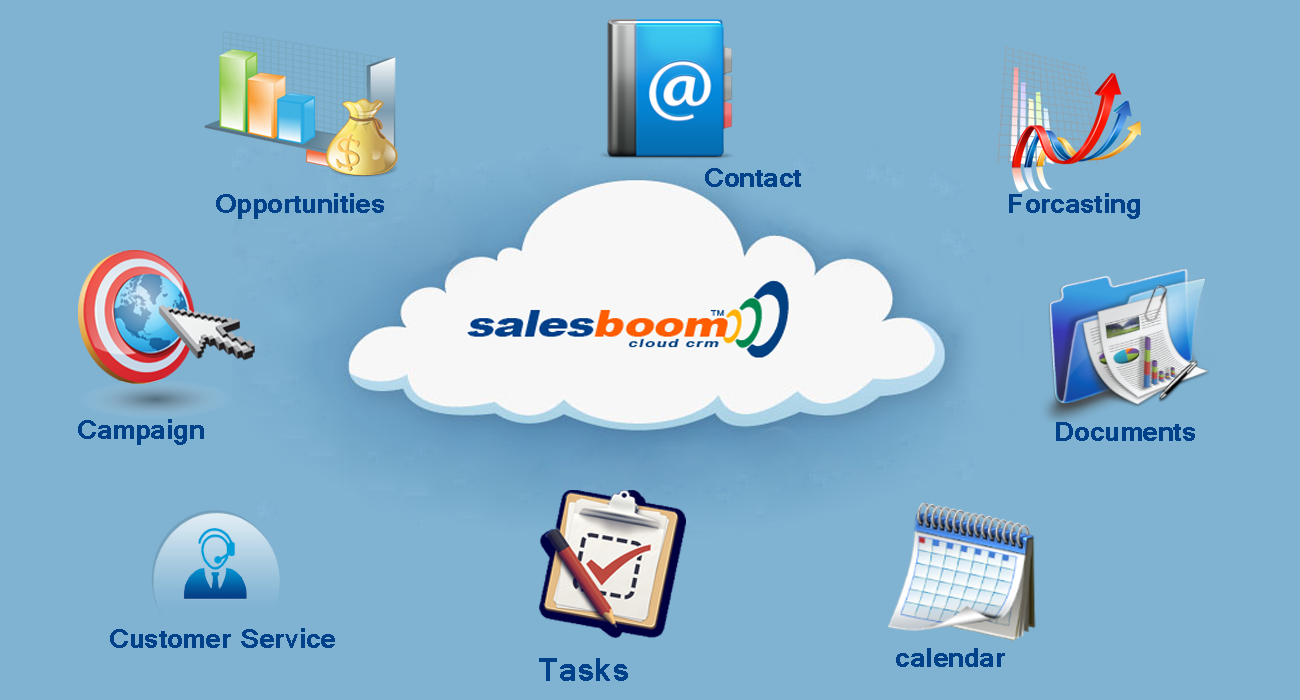In the realm of customer relationship management, the advent of cloud-based CRM solutions has revolutionized the way businesses connect with their customers. Best CRM cloud platforms offer a plethora of benefits, empowering organizations to streamline operations, enhance customer satisfaction, and drive growth.
With a myriad of CRM cloud providers available, selecting the right solution can be daunting. This comprehensive guide will provide you with the essential knowledge to navigate the landscape of CRM cloud solutions and make an informed decision for your business.
Understanding CRM Cloud
Customer relationship management (CRM) is a strategy for managing all interactions with current and potential customers. A CRM cloud is a cloud-based software solution that helps businesses manage their CRM processes. CRM cloud solutions offer several benefits over traditional on-premises CRM systems, including scalability, accessibility, and cost-effectiveness.
Benefits of CRM Cloud
- Scalability:CRM cloud solutions can be easily scaled up or down to meet the changing needs of a business. This makes them ideal for businesses of all sizes, from small startups to large enterprises.
- Accessibility:CRM cloud solutions are accessible from anywhere with an internet connection. This makes it easy for employees to access customer data and manage their relationships with customers, regardless of their location.
- Cost-effectiveness:CRM cloud solutions are typically more cost-effective than traditional on-premises CRM systems. This is because businesses do not need to purchase and maintain hardware or software, and they can pay for the solution on a subscription basis.
Key Features of a CRM Cloud

CRM cloud solutions offer a comprehensive suite of features tailored to enhance customer relationship management. These features empower businesses to streamline their operations, improve customer engagement, and drive growth.
When evaluating CRM cloud providers, it’s essential to consider the following key features:
Centralized Data Management
A CRM cloud centralizes customer data from various channels, providing a unified view of customer interactions. This eliminates data silos and ensures that all teams have access to the most up-to-date customer information.
Contact Management
CRM clouds allow businesses to manage customer contacts efficiently. They provide tools for storing and organizing contact information, tracking interactions, and segmenting customers based on specific criteria.
Lead Management
CRM clouds offer robust lead management capabilities. They help businesses capture, qualify, and nurture leads, automating workflows and providing insights into the sales pipeline.
Sales Automation
CRM clouds automate sales processes, such as lead assignment, opportunity tracking, and quote generation. This streamlines the sales cycle and improves productivity.
Marketing Automation
CRM clouds integrate with marketing automation tools, enabling businesses to create and execute targeted marketing campaigns. They provide features for email marketing, social media management, and campaign tracking.
Customer Service Management, Best crm cloud
CRM clouds offer tools for managing customer service interactions. They provide a centralized platform for tracking support requests, resolving issues, and monitoring customer satisfaction.
Reporting and Analytics
CRM clouds provide robust reporting and analytics capabilities. They generate insights into customer behavior, sales performance, and marketing effectiveness, helping businesses make data-driven decisions.
Mobile Access
CRM clouds offer mobile access, allowing users to manage customer relationships on the go. This enhances productivity and ensures that customer interactions are handled promptly.
Integration Capabilities
CRM clouds integrate with other business applications, such as ERP, accounting, and email marketing systems. This eliminates data duplication and provides a seamless user experience.
Scalability and Flexibility
CRM clouds are scalable and flexible, allowing businesses to adjust their systems as their needs evolve. They can accommodate varying numbers of users and data volumes, ensuring that the solution grows with the business.
Security and Compliance
CRM clouds prioritize data security and compliance. They implement robust security measures, such as encryption, access controls, and regular audits, to protect customer data.
| Feature | Purpose | Importance | Providers |
|---|---|---|---|
| Centralized Data Management | Provides a unified view of customer interactions | Eliminates data silos and ensures data accuracy | Salesforce, HubSpot, Zoho |
| Contact Management | Organizes and tracks customer information | Facilitates effective customer relationship management | Microsoft Dynamics 365, Oracle NetSuite, SAP |
| Lead Management | Automates lead capture, qualification, and nurturing | Improves sales pipeline efficiency | SugarCRM, Salesforce, Pipedrive |
| Sales Automation | Streamlines sales processes and improves productivity | Reduces manual tasks and increases sales conversion rates | Zoho, HubSpot, Salesforce |
| Marketing Automation | Creates and executes targeted marketing campaigns | Increases marketing ROI and improves customer engagement | Marketo, Salesforce, HubSpot |
| Customer Service Management | Tracks and resolves customer support requests | Enhances customer satisfaction and builds loyalty | Zendesk, Salesforce, Freshdesk |
| Reporting and Analytics | Provides insights into customer behavior and performance | Empowers data-driven decision-making and optimization | Salesforce, Microsoft Dynamics 365, Zoho |
| Mobile Access | Allows users to manage customer relationships on the go | Increases productivity and ensures timely customer interactions | Salesforce, HubSpot, Zoho |
| Integration Capabilities | Eliminates data duplication and provides a seamless user experience | Improves efficiency and reduces manual errors | Salesforce, Microsoft Dynamics 365, Oracle NetSuite |
| Scalability and Flexibility | Accommodates varying numbers of users and data volumes | Ensures the solution grows with the business | Salesforce, Zoho, Microsoft Dynamics 365 |
| Security and Compliance | Protects customer data and ensures compliance | Builds trust and maintains customer privacy | Salesforce, Microsoft Dynamics 365, Oracle NetSuite |
Best CRM Cloud Providers

When choosing a CRM cloud provider, it’s crucial to consider their offerings, strengths, and market reputation. Here are some of the top players in the industry:
Each provider offers a unique blend of features and services tailored to meet specific business needs. Let’s delve into their key offerings and strengths:
Salesforce
- Market leader with a comprehensive suite of CRM tools.
- Strong ecosystem of third-party integrations.
- Advanced analytics and reporting capabilities.
Microsoft Dynamics 365
- Integrated with Microsoft Office suite for seamless collaboration.
- Robust customer service and support capabilities.
- Customizable to fit specific business processes.
Zoho CRM
- Affordable and user-friendly option for small businesses.
- Offers a wide range of features, including sales, marketing, and customer support.
- Mobile-friendly interface for on-the-go access.
Oracle NetSuite
- Designed for large enterprises with complex business processes.
- Strong financial management and ERP capabilities.
- Highly customizable and scalable to meet evolving business needs.
SAP Hybris
- Focus on e-commerce and customer experience.
- Provides omnichannel support for seamless customer interactions.
- Advanced personalization and loyalty management features.
To help you compare the offerings of these providers, here’s a table summarizing their key features, pricing, and customer support:
| Provider | Features | Pricing | Customer Support |
|---|---|---|---|
| Salesforce | Comprehensive suite, strong integrations | Variable based on features and users | 24/7 support via phone, email, and chat |
| Microsoft Dynamics 365 | Integrated with Microsoft Office, robust support | Tiered pricing based on features and users | 24/7 support via phone, email, and online portal |
| Zoho CRM | Affordable, user-friendly, mobile-friendly | Tiered pricing based on features and users | 24/7 support via phone, email, and chat |
| Oracle NetSuite | Complex business processes, financial management | Variable based on features and users | 24/7 support via phone, email, and online portal |
| SAP Hybris | E-commerce focus, omnichannel support | Variable based on features and users | 24/7 support via phone, email, and chat |
Ultimately, the best CRM cloud provider for your business depends on your specific needs and budget. By carefully considering the strengths and offerings of these top providers, you can make an informed decision that will help you optimize your customer relationships and drive business growth.
Choosing the Right CRM Cloud: Best Crm Cloud
Selecting the optimal CRM cloud solution requires careful consideration of several factors. Businesses should evaluate their size, industry, and specific requirements to make an informed decision.
Factors to Consider
* Size:Small businesses may require a simple, cost-effective solution, while larger enterprises need a robust platform with advanced features.
Industry
Different industries have unique CRM needs. For example, healthcare providers require patient management capabilities, while retail businesses need e-commerce integrations.
Specific Needs
Identify the business processes that need CRM support, such as sales, marketing, or customer service. Determine the specific features and functionality required to optimize these processes.
Best Practices for Implementation and Integration
* Define a clear implementation plan:Establish a project team, set timelines, and allocate resources.
Integrate with existing systems
Ensure seamless data flow between the CRM cloud and other business applications.
Train users thoroughly
Provide comprehensive training to ensure user adoption and maximize system effectiveness.
Monitor and evaluate performance
Regularly track key metrics to identify areas for improvement and ensure alignment with business goals.
Case Studies and Success Stories
Numerous businesses have experienced remarkable transformations by implementing CRM cloud solutions. These case studies illustrate the challenges faced, solutions adopted, and positive outcomes achieved.
The following table presents a selection of successful CRM cloud implementations:
| Company | Challenges | CRM Solution | Outcomes |
|---|---|---|---|
| Company A | Inefficient lead management and poor customer engagement | Salesforce CRM | Increased lead conversion rates, improved customer satisfaction |
| Company B | Fragmented data and lack of visibility into customer interactions | Microsoft Dynamics 365 CRM | Centralized customer data, enhanced collaboration |
| Company C | Manual processes and limited automation | Zoho CRM | Automated workflows, reduced operational costs |
| Company D | Difficulty tracking customer interactions across multiple channels | HubSpot CRM | Unified customer view, improved marketing effectiveness |
Summary
Choosing the best CRM cloud solution is a strategic investment that can transform your customer relationships. By carefully considering your business needs, evaluating the key features of different providers, and implementing the solution effectively, you can unlock the full potential of CRM cloud technology and achieve remarkable business outcomes.
FAQ Insights
What is CRM Cloud?
CRM Cloud is a cloud-based customer relationship management (CRM) solution that allows businesses to manage customer interactions and data through the internet, eliminating the need for on-premises software and infrastructure.
What are the benefits of using a CRM Cloud solution?
CRM Cloud solutions offer numerous benefits, including scalability, accessibility, cost-effectiveness, improved collaboration, and enhanced data security.
How do I choose the right CRM Cloud solution for my business?
To choose the right CRM Cloud solution, consider your business size, industry, specific needs, budget, and the features and capabilities offered by different providers.